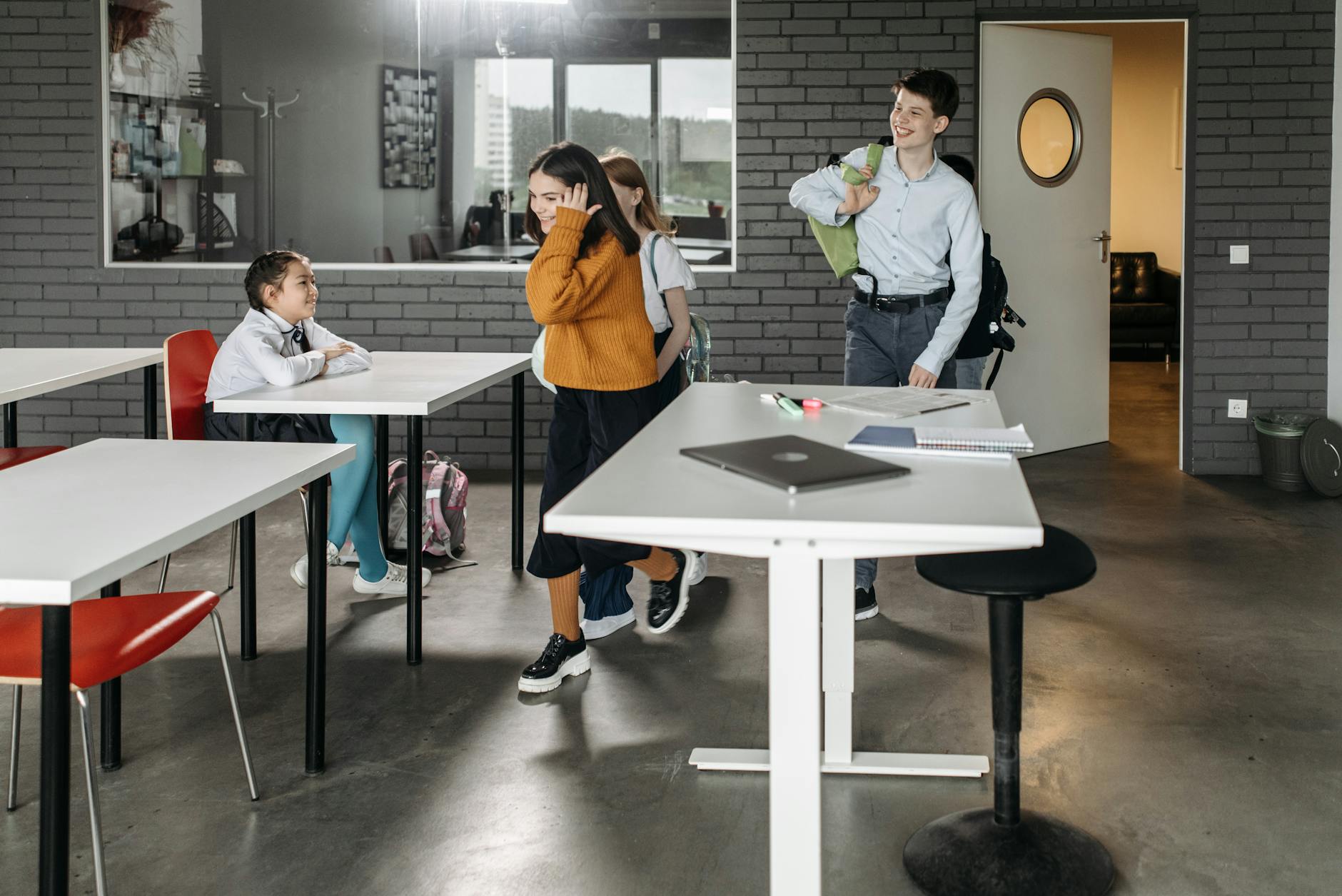How to Find Unique Weekend Activities in the United States for Creative Minds

Discover Hands-On Art Workshops
If you're eager to step away from the digital grind and dive into something more tactile, exploring online craft classes could be your first stop. It’s a brilliant way for beginners like Joshua to tap into their creativity from the comfort of their home. But for a more tangible experience, holistic art workshops around the Magnificent Mile area offer a unique chance to interact with art professionals.
Pottery and Ceramic Classes
Imagine the thrill of shaping clay into a beautiful vase or a quirky sculpture. Pottery and ceramic classes are not just enjoyable but also therapeutic, helping to clear your mind of daily pressures. Chicago is bustling with studios that offer these hands-on experiences, right in the heart of the city. They give you an opportunity to make something beautiful and functional, rewarding your patience and creativity.
Painting and Sketching Sessions
Whether at a specialty shop in Lincoln Park or amidst the serene setting of a beauty spa in River North, painting and sketching sessions offer an intimate space to explore colours and forms. These sessions can be an oasis of calm that enhances your artistic skills while relaxing your mind—a far cry from the usual screens and codes.
Sculpture and Clay Modeling
Move beyond flat surfaces and experiment with sculpture and clay modeling. These classes challenge you to think in three dimensions, refining your spatial awareness. It's an ideal way to sharpen problem-solving skills and break from digital confines. Consider gifting an experience gift card to a friend so they can join in the creative fun too.
Finding a balance between technology and creativity can make your everyday life more fulfilling and enjoyable.
Engage in Outdoor Creative Pursuits
Urban Sketching Adventures
As someone who loves the thrill of technology but craves a break from the digital world, I've found urban sketching to be a refreshing bachelorette party ideas escape. Chicago's rich architectural tapestry, from its modern skyscrapers to historic buildings, offers endless inspiration. I initially started sketching during my walks down the Magnificent Mile. With a simple sketch pad and a few pencils, I explored the intricate details of the cityscape that often go unnoticed.
For someone with a low knowledge level in art, sketching in Lincoln Park was more than just a creative outlet — it was an opportunity to see the world with fresh eyes, understanding shapes, shadows, and contrasts at a deeper level. This hands-on learning experience contrasted sharply with my usual digital environment and stimulated my creativity.
If you’re like me and value the blend of analytical and artistic pursuits, try joining a pottery class in pottery classes Chicago for a fuller creative immersion. Urban sketching or any artistic endeavor can be as basic or complex as you choose, allowing you to redefine your perceptions and expand your horizons. This blending of art and personal growth is both enriching and satisfying, allowing for unexpected creativity to flourish.
Explore Interactive Performative Arts
Improv Theatre Workshops
Imagine stepping into a space where spontaneity is the rule, and laughter is the currency. Improv theatre workshops offer an exhilarating escape from the structured confines of tech life. As someone who's often anchored to a screen, these workshops provide an opportunity to experience the joy of unscripted storytelling. You get to practice quick thinking and creativity, which are crucial skills beyond algorithms and code. Attending an improv class near Lincoln Park might just enlighten your sense of improvisation and spark a wave of creativity.
Experimental Music Sessions
Want to explore the beautiful fusion of sound and rhythm? Experimental music sessions allow you to break free from conventional auditory experiences. Here, you experiment with unconventional instruments and explore unique soundscapes. Such sessions can be an audio playground, helping you to appreciate the diversity in creativity. Plus, it’s a great way to unwind after a long day of crunching numbers.
Dance and Movement Classes
Express yourself through the dynamic world of dance and movement classes. By embracing different styles such as contemporary or hip-hop, you'll discover an engaging way to express your creativity. If you're accustomed to the static nature of code, movement classes can provide a refreshing contrast. Just like with baking classes NYC and pottery classes NYC, these dance sessions provide a tactile, interactive experience that’s both refreshing and invigorating.
Delve into DIY Craft Experiences
Woodworking and Carpentry
As someone who's always surrounded by digital landscapes, the tactile nature of woodworking can be a gratifying contrast. You see, when I ventured into a woodworking class, I found the experience akin to debugging a complex code—but with a satisfying, tangible result at the end. Starting with simple projects like birdhouses or spice racks, you'll quickly realise how these sessions stimulate both your analytical mind and your creative side. Plus, going hands-on in this way aligns with the spirit of paint and sip Chicago sessions, where the focus is more on the process than perfection.
Textile and Fiber Arts
Initially, I underestimated textile arts, assuming that knitting or weaving might be mundane. Yet the intricate designs and hands-on process soon captivated me. Think of it as a meditative exercise, which can even inspire your tech work by encouraging a meticulous, step-by-step approach. Whether it's creating a chic scarf or a decorative wall hanging, these activities transform a few skeins of yarn into a finished product. Like taking a leisurely walk along The Magnificent Mile, every loop and knot builds toward something substantial and rewarding.
Glass Blowing Techniques
Glass blowing sessions offer a visceral, immersive experience. Picture this: flowing molten glass twisting and shaping under your guidance. You must navigate the balance between heat, time, and motion—a far cry from digital precision, yet oddly similar in its required focus and dexterity. This ancient craft lets you create unique pieces, each a testament to the melding of form and function. While not as common as a paint and sip NYC meetup, glass blowing offers an unmatched fusion of artistry, excitement, and the unknown.
Navigating Common Creative Challenges
Overcoming Creative Block
When it feels like you're staring at a blank canvas, sometimes all it takes is a change of scenery or a stroll through the bustling streets of the Magnificent Mile. There have been days when I felt stuck, so I took a detour to one of the beauty spas in River North, indulging in those moments of self-care. These can act as a reset button for your mind, rejuvenating your creative flow. Or consider diving into a hands-on class at a specialty makeup store in Lincoln Park, where experimenting with colors and techniques can spark fresh ideas. Remember, it's okay to take a break and come back with renewed perspective.
Avoiding Repetitive Patterns
If you find your work stuck in a loop, like a playlist set on repeat, it's time to remix your approach. Explore new mediums or attend a different type of workshop. I once swapped my usual painting class for a pottery session, learning the intricacies of ceramics in a dynamic environment. This switch not only widened my skills but also added new dimensions to my artistic style. Embrace these shifts to escape redundancy and breathe novelty into your creations.
Embracing New Perspectives
Lastly, encourage yourself to step outside your comfort zone. Engaging with diverse art forms—like improv theatre or experimental music sessions—can open up new avenues. These experiences provide fresh insights and challenge your old ways of thinking. Reflecting on these interactions helps me evolve my creativity continually, ensuring my art stays relevant and compelling while meeting new expectations.


